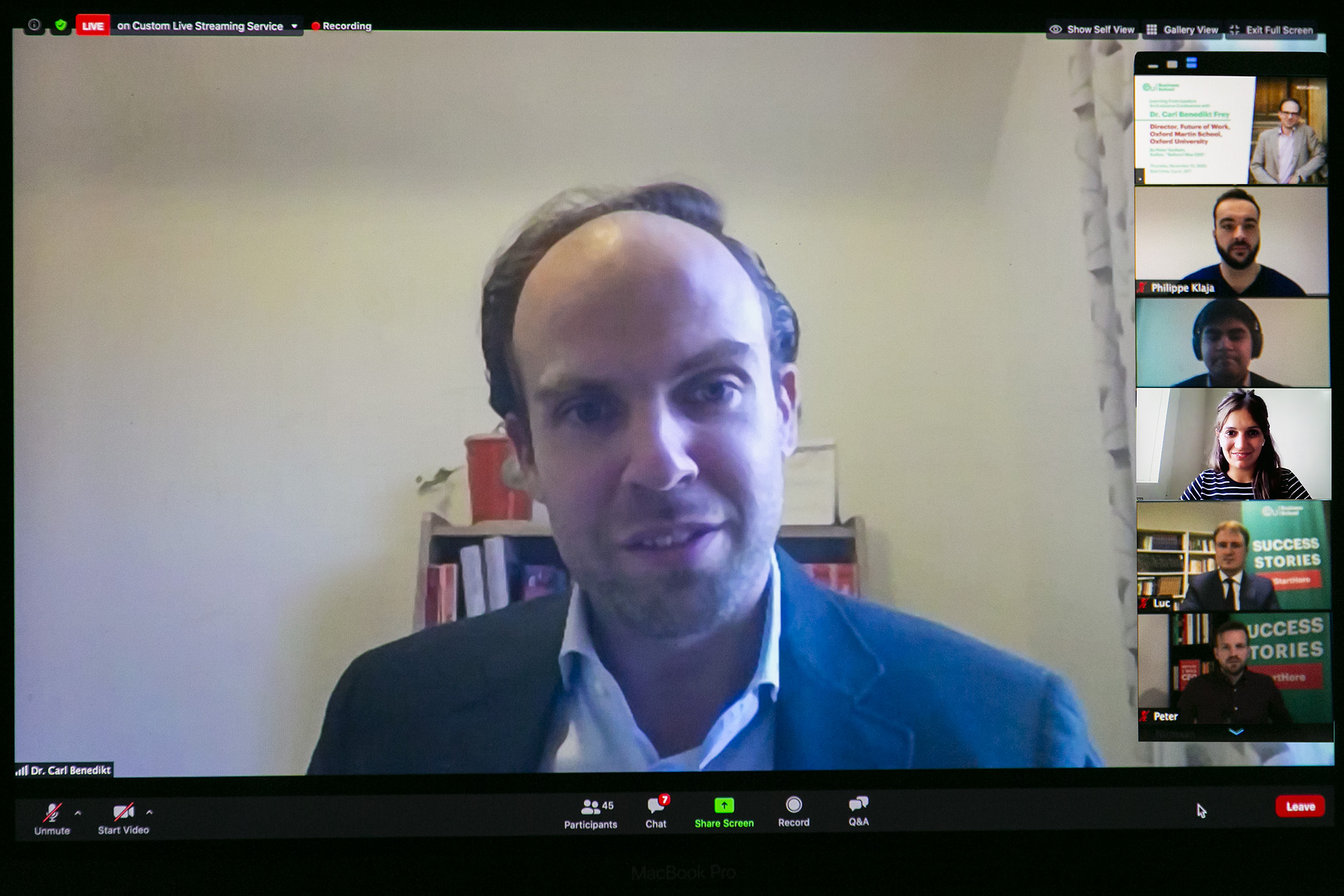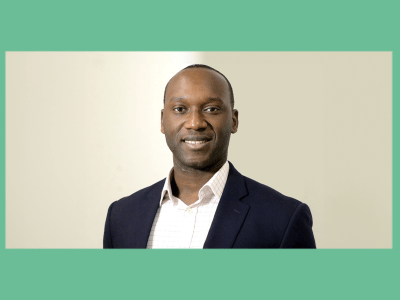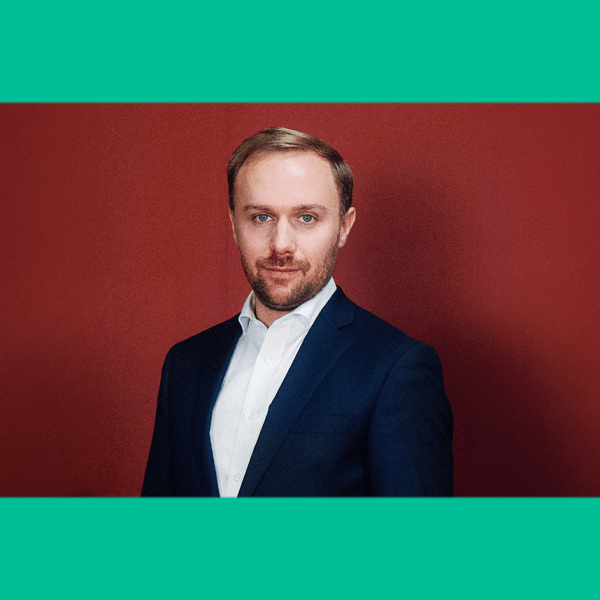“Location Is Going to Be More Relevant Than Ever” – Dr. Carl Benedikt Frey, Director, Future of Work Program at Oxford University
Dr. Carl Benedikt Frey is the Director of Oxford University’s Future of Work program, part of the Oxford Martin School, a think tank which brings academics together from across disciplines to tackle challenges facing society today. He is also an advisor and consultant to several Fortune 500 companies as well as international organizations such as the G20, the OECD, the European Commission and the United Nations. His work has been referenced by President Barack Obama’s Council of Economic Advisors, the Bank of England and the World Bank, among others. His most recent book, “The Technology Trap”, was selected a Financial Times Best Books of the Year in 2019.
In our latest Learning From Leaders conference, Dr. Frey spoke with Peter Vanham, author of “Before I Was CEO”, about his work at Oxford University, his early interest in how technological progress and history intertwine, and offered tips from his research to guide EU students in their career decisions.
Here, we have distilled some of the key questions answered by Dr. Frey during this fascinating discussion.
Will the Rise of Remote Work Continue After Coronavirus?
Before the effects of coronavirus were felt around the world, only about 5% of working people were accustomed to regularly working from home. Since the virus, that figure has risen to over 40%. Many people see the future holding a combination of two to three days per week in the office and the other two to three working remotely, whether that’s from home or from a tropical island that happens to have a reliable internet connection!
“Right now, it certainly feels like you can work from anywhere,” Dr. Frey acknowledged. However, this assumption ignores a critical fact: many jobs cannot be done remotely. Obvious examples include service industry roles such as a chef or hotel manager, and specialist roles like pattern cutting for the fashion industry. However, Carl pointed out that many jobs currently being done remotely, such as his own, involve aspects of work that can be delivered at a distance, and others which require human interaction if they’re to be done to a high standard.
Dr. Frey predicted that once the virus has been brought under control and a vaccine becomes available, there will be a return to the office: “Location is going to be more relevant than ever”, he commented. There is a reason that knowledge industries tend to cluster and develop in specific areas, such as in San Francisco’s Silicon Valley. Knowledge spillover and sporadic interactions between people from different areas of expertise are invaluable for innovation and creativity; this forms the essential first part of a project’s life cycle: exploration. This is the work that is difficult to do well remotely and that represents a much more complex challenge for automation or computerization.
Are the Robots Going to Steal Our Jobs?
Work that cannot be done remotely is far less vulnerable to being computerized, Dr. Frey remarked. There are, broadly speaking, two types of work:
- The first is exploration. This is the creative, research and conversation-based phase in a project’s life cycle where the aim is to gather ideas, interact with other people and inhabit other spaces. Although it is possible to meet over Zoom, it is not possible to find the same serendipity in a digital space as you can when interacting face to face with other humans.
- The second is execution. This is where ideas are transformed into artefacts, whether paintings, academic papers, new products or services. This type of work is more likely to be computerized, either now or in the near future. For example, advanced robotics are already transforming the way products are made in factories.
Yet, according to Dr. Frey, this potential for automation is not a bad thing. “Exploration is more fun than execution,” he argued: “You can spend more time exploring and have the help of computer systems to do the execution.” Dr. Frey used automation to put together the paper he and his co-author Michael Osborne wrote on “The Future of Employment: How Susceptible are Jobs to Computerization?”, which was published in 2013 to considerable press attention.
Carl and Michael used machine learning to classify how many jobs are likely to be displaced by machine learning in the future, which is somewhat ironic. However, Dr. Frey pointed out that computer play a supporting role: human minds came up with the question, humans taught the machine to find what they needed, and humans formed the results into an academic paper. Using advanced technology “shows the symbiotic relationship between exploration, execution and how artificial intelligence can be used to a, improve quality and b, increase productivity,” while demonstrating its limitations and why it cannot completely replace human input.
What Are the Barriers to Automation in Business?
As we have seen, explorative work is the most resistant to automation. Exploration involves three key elements that cause significant technological challenges:
- Complex social interactions. The Turing Test was developed in 1950 by mathematician and codebreaker Alan Turing to test a machine’s ability to exhibit intelligent behavior equivalent to, or indistinguishable from, that of a human. Although in recent years a chatbot has managed to convince a panel of judges of its humanity, the bot imitated a child, making the test easier to pass and the feat far less impressive that it might seem. There is still a long way to go when it comes to creating robots that really are human-like.
- Creativity. Dr. Frey defined creativity as “developing something new that makes sense to most people.” Although machines have been taught to create modern art and compose pieces of music, true creativity is arguably still a long way off.
- Perception and manipulation tasks. Robots are still unable to effectively navigate unstructured environments or identify objects they come across. In factories, a structured space can be created to accommodate custom-made robots, which is why advances have been made using robotics in industry. However, creating a robot that can replace a housekeeper’s role, for example, is unlikely to happen any time soon.
Dr. Frey was optimistic about the future of work in the face of increasing automation. Although “roughly 47% of jobs are potentially automatable from a technological capabilities point of view,” he said, “obviously there are a lot of other factors driving decisions to automate.” In industries that fluctuate seasonally, for example, there is less benefit to be had from making the huge initial investment in technology.
Similarly, while 47% of jobs are automatable, 53% of jobs are not, and history has shown us, Dr. Frey pointed out, that there is no known saturation point when it comes to human interests. As an example, he pointed out that 50 years ago no one would have anticipated the economy would be able to support so many yoga teachers.
One of the stranger things the research for his paper revealed was that fashion models are vulnerable to automation. Dr. Frey dismissed this until recently; innovations have now been made in this space. He suggested that while sophisticated robots might be suitable to replace models on fashion photoshoots, catwalk runways require greater social skills and better mobility and therefore are far less likely to be automated. However, this example illustrates some of the nuances that will affect how computerization and automation may change the shape of human roles across industry, rather than replacing them.
How Can We Ensure Technology Is Not Misused in the Future?
This perceptive question was one of many posed by EU students and alumni. Dr. Frey advised that the best way for us to shape a future in which technology supports and assists humans is by learning from history. The first lesson, he said, is that we must accept that some negative effects cannot be prevented. During the industrial revolution, for example, no one knew that burning a lot of coal would have detrimental effects on our planet. Similarly, much is yet to be understood about artificial intelligence (AI).

However, we can mitigate the negative impacts of widespread computerization. Firstly, we must make sure that the data sets used to develop new technologies are representative of the true diversity of the human population. To ensure this, we should set up ethics committees to review the data that is being used. This is fundamental to ensure technology supports the progress of society towards greater equality and universal prosperity.
There are other more specific challenges we will face. Warfare, for example, will look completely different in the future. People from different disciplines need to come together to think through the implications of computerizing different elements of human society and industry. Adopting new technologies can bring about prosperity in the long run, as it did after the industrial revolution. However, in the short term this means navigating significant disruption.
History reveals useful lessons. For example, during the industrial revolution there was less unrest in the U.K., where the poor laws were more generous, than was seen in France. The impact of computerization will be felt differently in different places depending on their policies. Consider, for example, the impact in the U.S.A., where, if you lose your job you also lose your access to healthcare, compared to Sweden, where there is a more generous social security safety net. Upheaval of the kind that could be caused by automating job roles will be mitigated by policies that offer support to people who are temporarily displaced, who need to upskill or retrain.
On the flip side, we can also see from modern history that countries like Sweden that have de-industrialized are more likely to vote in governments on the political far-right, which poses another set of challenges. What we need to do is develop policies that recognize difficulties that will arise and smooth the path towards progress.
How Can You Create a Career Resistant to Automation?
Drawing upon his research, Dr. Frey had some helpful tips to share with EU students and alumni attending the event.
“I am of the old-fashioned view that you should try to figure out what you are good at and what you like and what you enjoy doing,” he said; “finding your passion today is as important today as it has ever been”. Carl recalled the moment he discovered his passion for the twin forces of history and economics when, aged 14, his father gave him two ‘essential’ books to read.
Reading “The Lever of Riches” by Joel Mokyr and “The Innovators Dilemma” by Harvard professor Clayton M. Christensen triggered an early interest in technology. Carl realized that “the transition hasn’t been smooth,” that people resist the introduction of new technologies and that there’s nothing inevitable about this aspect of progress. Later, at university, he studied economics and “did a little bit of history on the side”. One of his professors was very inspiring and recognized that companies would soon be valued on their intellectual property like patterns, brands and other intangible assets, rather than on tangible assets. He taught Carl that understanding and measuring those elements would be critical to understanding what drives growth in the future. Through exploration – reading and connecting with others – Dr. Frey was able to discover and develop his passion, which ultimately shaped his career.
Other than this essential first step – working out what you enjoy and what you are good at – he advised the audience to do things that are not automatable. “That does not just mean you should go into the arts,” he explained, “even economists can be creative”. Nearly every job involves at least one of the three key barriers to computerization: creativity, complex interactions and tasks that require perception and manipulation.
Dr. Frey went on to explain how this altered way of working should inform the way that we teach. Schools and universities should offer smaller group sessions with high levels of interaction and essay-based testing, as these activities will develop the more human, less automatable, skills we possess.
And mathematics and statistics are two subjects that students should take seriously, he said. Both inform the ever-growing field of data analysis and computer sciences, areas of work that are going to continue to expand. These skills will set students in good stead for a fulfilling career and will make them incredibly employable upon graduation.
How Should You Decide Where to Build Your Career?
Technologies like AI are decentralizing, rather than centralizing. Machine learning cannot be developed centrally and deployed locally as the data landscape will not be the same. This means there are many cities globally that offer a great environment in which to start and establish a successful career.
The important factor to consider, Dr. Frey advised, is the type of business you want to go into and where that industry is present. Weigh up your options by considering things like the presence of talent and companies operating in your area of interest, as well as practical factors such as the cost of living and quality of life. Your location should suit both your tastes and your professional needs.
“In Barcelona and Munich there seems to be a lot happening in digital and both are great places to live, and not just because of the industry,” Dr. Frey remarked.
Futureproof Your Career at EU Business School
With four European campuses in Barcelona, Geneva, Montreux and Munich, as well as online, EU Business School is well-placed to deliver the business education you need to futureproof your career. Small class sizes and an interactive, pragmatic approach to gaining the knowledge, skills and mindset required for business success are central to our approach to teaching.










